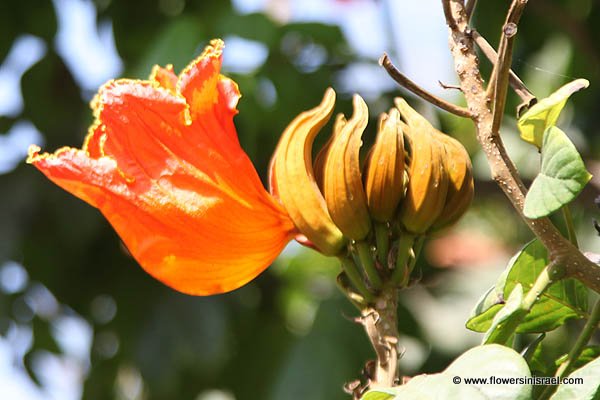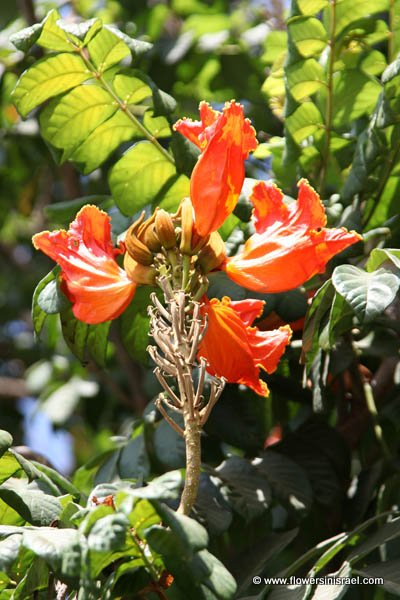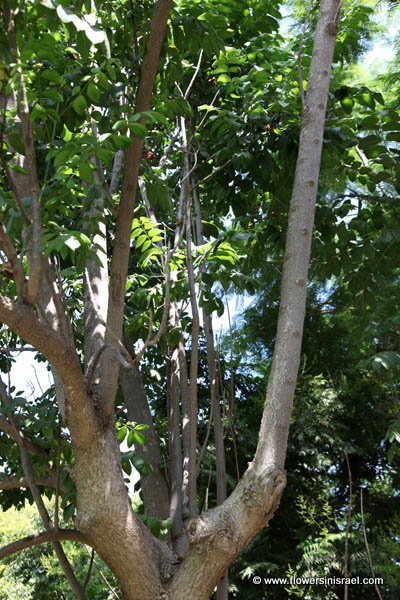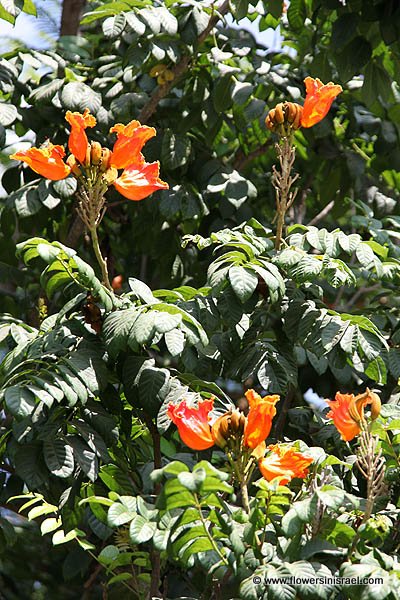
|
Pictures taken during 'Tour guide in-service training' at Weizman Insitute, Rehovot, an institution of scientific learning with the most beautiful campus. The site is landscaped with interesting and unusual vegetation, green lawns, bushes, trees and foothpaths shaded by trees from all parts of the globe, and the African Tulip Tree or Flame-of-the-Forest, is one of them. |
| Scientific name: | Spathodea campanulata Beauv. | |
| Synonym name: | Spathodea nilotica Seem. | |
| Common name: | African Tulip Tree, Flame-of-the-Forest | |
| Hebrew name: | עץ הטוליפ ,מתחלית פעמונית | |
| Family: | Bignoniaceae, Trumpet Creeper Family, ביגנוניים |

|
| Life form: | Tree, medium sized, 7–25 m m high, deciduous, with a round, heavy crown of dense, dark foliage, sometimes somewhat flattened | |
| Stems: | Young bark pale, grey-brown, smooth; with age turns grey-black, scaly, cracked vertically and horizontally | |
| Leaves: | Odd-pinnate, opposite, with 13 - 17 opposite elliptic leaflets | |
| Inflorescence: | Terminal racemes, upward facing, orange-red or yellow flowers unfurl from velvety, horn-shaped buds; flowers in circular whorls with a collection of crowded buds in the center of the circle | |
| Flowers: | Hermaphrodite; campanulate, claw-shaped, crinkled orange-red to scarlet or yellow petals, with 4 pale yellow stamens and dark brown anthers | |
| Fruits / pods: | Capsules, lance or boat-shaped on stout stalks | |
| Flowering Period: | March to December | |
| Habitat: | Naturally in Africa in secondary forests in the high forest zone and in deciduous, transition, and savannah forests | |
| Distribution: | The Weizmann Institute campus, Rehovot | |
| Chorotype: | Tropical West and Central Africa |

Derivation of the botanical name: Spathodea, spathe, Greek, meaning resembling a spathe; in allusion to the form of the calyx. campanulata, bell-shaped. nilotica, from the valley of the Nile.


|